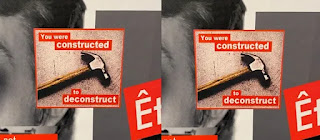The Tyranny of the Urgent: How Priority Overload Can Leave You Stuck on the Treadmill.
Ever felt like you’re running full speed on a treadmill, working harder than ever but not actually getting anywhere? Welcome to the tyranny of the urgent—a fast-paced, chaotic zone where everything demands your attention, but nothing truly moves the needle.
Let’s kick this off with a quick anecdote. Picture this: A flustered manager bursts into a travel agency and yells, “I need a ticket right now!” Calmly, the agent asks, “Where would you like to go?” Without missing a beat, the manager snaps, “I don’t care! Just get me on a plane. I’ve got business everywhere.” This scene, both absurd and painfully familiar, sets the tone for our discussion.
R. Alec Mackenzie, a time management guru, sums it up perfectly: “Urgency engulfs the manager; yet the most urgent task is not always the most important.” The problem isn’t being busy—it’s being busy with all the wrong things. Urgency twists our sense of priority, and when we let it call the shots, we’re not managing by strategy; we’re managing by crisis.
Busy Doesn’t Equal Productive
Let’s talk about those workplaces that buzz with activity but somehow never seem to get ahead. One frustrated manager described his team’s performance as a relentless parade of unfinished projects and half-baked ideas. “We’re constantly juggling goals and action plans, but before we finish one thing, a new ‘urgent’ priority lands on our plates. It’s like our boss is a nervous water bug, darting from one random idea to the next.”
Sound familiar? It’s easy to confuse busyness with progress, but they’re not the same thing. Being “busy” can feel productive in the moment, but if that busyness doesn’t align with long-term goals, it’s just wasted energy. Urgency has a nasty habit of steering us away from meaningful results and into the realm of short-term firefighting.
The Infinite Wishlist
Here’s the thing: we can’t do it all. The list of dreams, projects, and improvements we could pursue is endless. There’s always one more idea to explore, one more gap to fill, one more innovative breakthrough just waiting to be discovered. But chasing everything is a surefire way to accomplish nothing.
That’s why we need to choose—and choose wisely. The secret lies in setting crystal-clear priorities, knowing when to say yes, and, more importantly, when to say no. Some actions will propel us forward, some will keep us spinning in place, and others won’t make a difference at all. Without clear targets, you—and your team—won’t know the difference.
Choosing What Matters Most
Establishing meaningful priorities is part art, part science. The strategic part is deciding what’s worth pursuing in the first place. The tactical part is figuring out how to organize your time and resources to make it happen.
But here’s the catch: setting priorities isn’t a one-and-done deal. It requires constant evaluation and discipline. It’s about refusing to let the urgent overshadow the important, and choosing purpose over panic.
So the next time you feel like that frantic manager at the travel agency, take a deep breath. Before you dive into the next urgent task, ask yourself: “Where do I really need to go?” Because without a clear destination, all the busyness in the world won’t get you anywhere.





